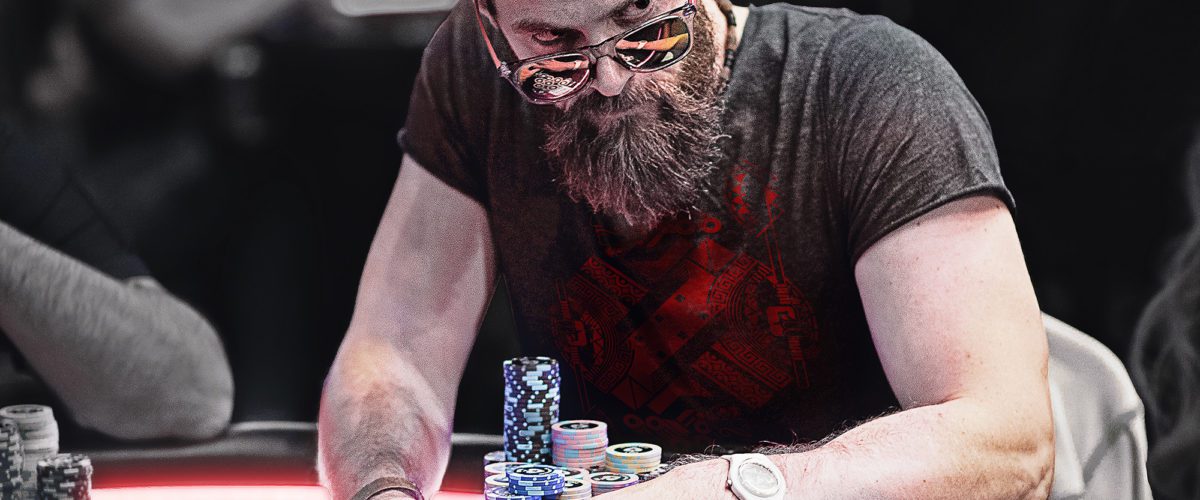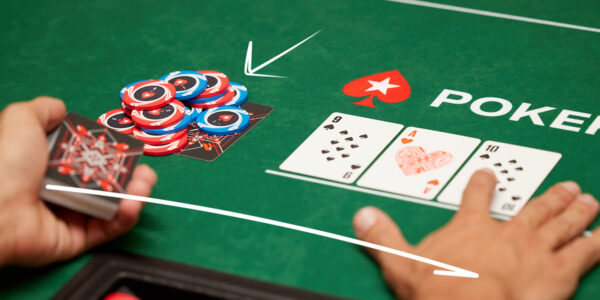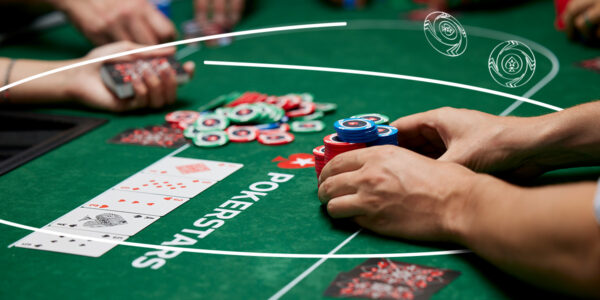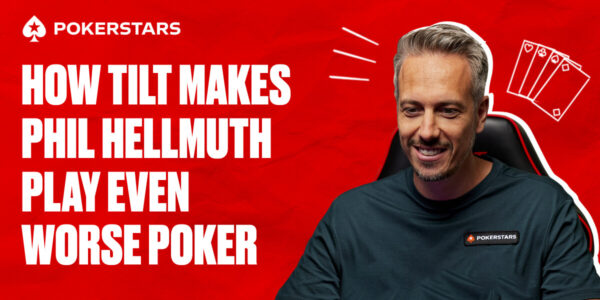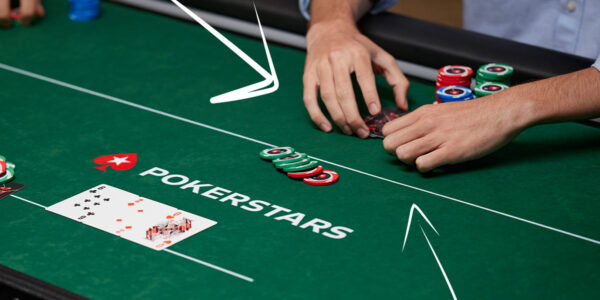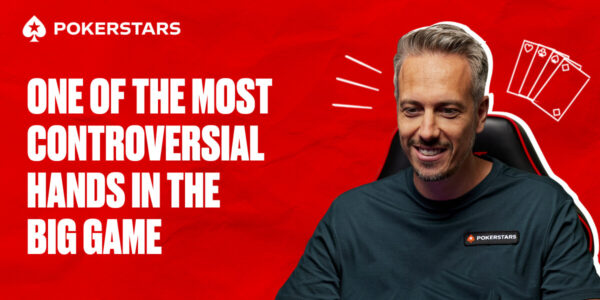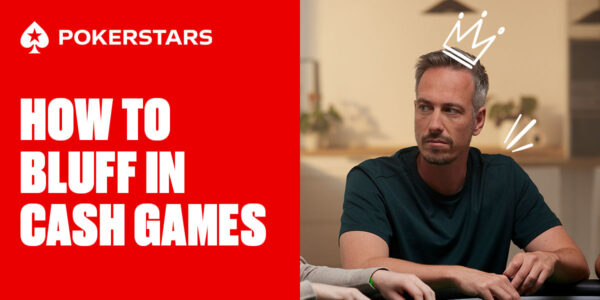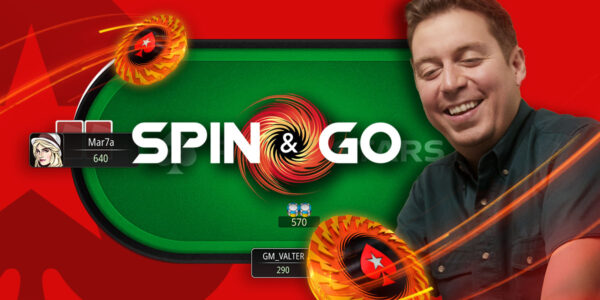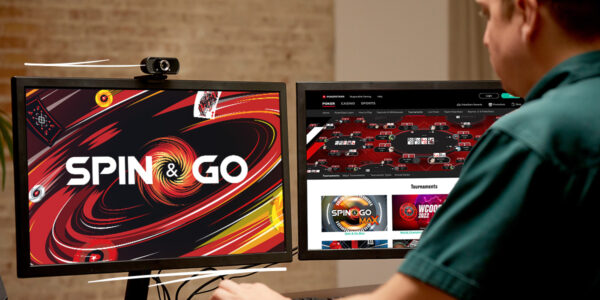Facing a Donk Bet Multiway
In today’s article we’re going to take a look at another hand that was recently posted in the PokerStars Discord for review where the hero was lost as to how to proceed. As this spot is one that is not super common, many players find themselves feeling a bit lost on what to do. Let’s take a look and see how you feel…


This is a 2NL 6-max cash game on PokerStars. It’s not a zoom game, as we are currently 5 handed. The stacks are as follows:
MP $2.17
CO $2
BU $0.83
SB $2.51
Hero (BB) $3.16 – 8♥ 8♦
Preflop action:
MP – Fold
CO – Raises to $0.06
BU – Calls $0.06
SB – Calls $0.05
Hero (BB) – Calls $0.04
Preflop action looks good. We have great implied odds in a multiway pot closing the action. If we were to try and squeeze, we would deny equity to some caller hands who may have to fold, but also open ourselves up to getting reraised by CO’s stronger opens and possibly getting blown off of this very +EV spot preflop
Flop:
2♥ 7♥ 5♦
SB – Bets $0.10
So here we are, the small blind has donked out into the field for a little over 40% pot. What’s your play here as the Hero?
There was some debate in the chat about calling vs. raising. It’s not surprising; this is not exactly a spot that we see frequently, so it’s natural to feel a bit lost. Personally, I feel that calling here is a significant mistake however.
Let’s unpack what’s going on. The SB donking out is often going to be doing so with 1 pair type hands for “protection” and “to see where they’re at” (it’s 2nl remember, this is the mindset of fun players), or with draws hoping to set their own price and maybe take it down (unlikely in a multiway pot, but again, the 2nl pool in general may not recognize this). If they had flopped a set, many players “check to the raiser” either to slow play, or check/raise, so we won’t see that holding shown to us too often here.
Now, they can have hands like 99, or 7♣ 5♣ that are worried about the flush draw in a 4 way pot, so we are not automatically ahead of the SB. But considering they will likely be heavy in draws and 7x as well, an isolation raise should prove very +EV as we should be well ahead of their range as a whole. Now consider what happens behind us if we raise. We are going to force the preflop raiser to really play their hand honestly now. Missed overcards are going in the muck, which isn’t bad as those all have 6 outs to beat us so we deny them any equity realization. Overpairs will continue, but if they re-raise we have a pretty easy fold with 88. The PFR’s flop 3-betting range here is likely very saturated with overpairs, and a few strong flush draw combos (which have a lot of equity against our 88 anyway with 2 overs and the flush draw). In other words, our 88 should perform very poorly vs. the PFR when they 3B this flop after our raise of the donk lead.
By forcing them to play honestly, we can play our hand and range perfectly vs. their 3-bet, getting more money in with our sets (which I would also raise the donk lead with), continuing with draws when appropriately priced, and folding our low equity holdings like 88. Should we call the donk bet instead of raising, now we are allowing overcards to peel the turn behind is at a reasonable price. Many turns will be problematic for us in terms of how to proceed, and we allow all holdings to realize equity. While it may be a natural human thing to feel “weak” when we raise the flop bet and then fold to a reraise (when we get reraised), it’s important to fight that notion and make the play that brings us the most benefit and EV.
Our Hero just called however, so let’s go back to the action:
Flop:
(Pot: $0.23)
2♥ 7♥ 5♦
SB – Bets $0.10
Hero – Calls $0.10
CO – Folds
BU – Folds
Turn:
(Pot: $0.42)
2♥ 7♥ 5♦ 2♠
SB – Checks
Hero – ?
Considering we called the flop donk bet, we got a fantastic result. Both players behind us folded anyway, and the SB did not continue betting on what should be a safe turn card. If they had a better hand than ours, or a draw, they likely would bet again at a high frequency. So this range looks a lot like 7x or 5x now, with maybe some draws that are hoping for a free river or planning to check/call so they don’t get raised if betting again.
This is a spot that cries out for a bet by our hero. We are usually well ahead with 1 card to come and the small blind will have many worse hands that will give us value. Even if that donk lead was just some weird, ill-advised stab with random overcards, and their plan is to fold now, that’s fine because again by betting we deny them a free chance to realize their equity on the river.
Our hero missed a bit however and checked behind.
River:
(Pot: $0.42)
2♥ 7♥ 5♦ 2♠ 5♠
SB – Bets $0.10
Hero – Calls
I think the call is fine. I do feel like we still have the best hand facing what is essentially a blocking bet of 25% pot, but it’s unclear if we’ll get paid off by 7x or 33 should we raise. I’m not opposed to raising for value, and simply folding if they come back over the top, but if we feel uncomfortable with that a call seems fine.
Showdown:
SB – Q♦ 7♦
Hero – 8♥ 8♦
Hero wins the pot, but was unsure how to play this hand, particularly facing the flop donk bet in a multiway pot. Things really fell perfectly into place for our hero given the line they chose. While everyone seemed in agreement with betting the turn as played (which I fully agree with as well), the flop is where we get a bit lost. Raising ensures the players behind us don’t realize equity with random overcard hands, while simultaneously extracting more value from the SB who’s donked out. When you find yourself in this type of situation, ask yourself the following:
- What is the donk bettor’s range and how does my hand fare against that range?
- How will the players behind me respond to a donk lead and a raise in front of them, particularly the PFR?
When the first bullet point is well in our favor, and the answer to the second bullet point is they will likely respond honestly based on the strength of their hand, the benefits to raising far outweigh a call so you can pull the trigger with confidence.


